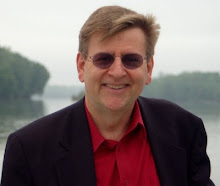From xkcd, by Randall Munroe.
On the OPERA neutrino experiment, the conservative war on relativity, and the operation of science (with a nod to the biggest science boo-boo in Star Wars).
One can understand, if not necessarily agree with, the conservative war on the Theory of Evolution. If you believe that a specific book must be taken literally, and that book states that the Earth was created in seven days, then it is impossible for Darwinian evolution to have taken place. Either the book in question is not literally true, or the theory must be wrong. You can’t have both.
I must admit, though, to being perplexed by the conservative opposition to the Theory of Relativity. I first encountered this when one of my White House speechwriter friends asked me to review an unpublished manuscript ostensibly debunking Einstein. (It was written by a political science major.) The book was filled with bold assertions, dismissal of contrary evidence, and an ongoing hint that relativity was enthroned not because of its merits as a theory, but because of an ongoing conspiracy by what xkcd refers to as the “Science Thought Police.” In other words, it was just like the anti-evolution arguments.
The objection to relativity seems to rest on a semi-religious foundation: the idea that reality is in some sense objective, without uncertainty or variability. There’s an existential threat in the idea that some parts of reality are subjective, variable, or…well, relative. More importantly, the objection goes to the heart of the idea of science itself, the idea that the experimental method, peer review, and testable hypotheses can separate the valid from the invalid. For those whose authority rests on a foundation of “truth,” testability can be quite inconvenient.
Which brings us to the OPERA neutrino experiment, in which the underground Gran Sasso Laboratory measured the velocity of neutrinos from CERN at moving slightly faster than the speed of light (c). The difference is not great — 60 nanoseconds faster over a distance of 730 kilometers (with an expected error of ±10 nanoseconds) — but any evidence that a particle can exceed the speed of light forms a huge challenge to the foundations of modern theoretical physics. (For the curious, the official paper can be found here.)
Not so fast. The researchers themselves have not made any claims so bold. Before publishing, they looked for experimental errors. They re-ran the experiment. They looked at a variety of potential explanations and controlled for as many variables as they could. By publishing the results, they aren’t making the claim that they’ve refuted Einstein, but rather quite the opposite: they are appealing to the scientific community to repeat the experiment and see if they can discover why the OPERA results are incorrect.
That’s as it should be. Given the overwhelming body of evidence post-Einstein that confirms the principles of relativity, an anomalous result deserves to be treated with skepticism. Extraordinary claims, as they say, require extraordinary proof.
In fact, there’s already a strong experimental case that undercuts the OPERA results. On February 23, 1987, light from a supernova in the Large Magellanic Cloud, one of the two dwarf galaxies that orbit our own Milky Way, reached Earth after traveling approximately 168,000 light years. It was the closest supernova to Earth since Kepler’s Supernova of 1604, and the first since then to be visible to the naked eye.
About three hours before the visible light from SN1987A reached Earth, neutrino bursts were observed at three different neutrino observatories. This doesn’t mean those neutrinos traveled faster than light; the visible light produced by a supernova’s collapsing core has to travel upward to the stellar surface, while neutrinos zip right through the intervening material. If those neutrinos were traveling as fast as the OPERA observations indicate (60 ns per 730 km), the neutrino bursts should have arrived nearly four years before the visible light.
What, then, do the OPERA results mean? One possibility — the likeliest, according to most blogging scientists I’ve been reading in the past few days — is that a measurement error did in fact occur. If there’s not a measurement error, and it turns out that the neutrinos do move slightly faster than our current measurement of c, it still won’t “refute” Einstein -- our GPS units (which rely on relativity equations) still work. Einstein, after all, didn’t “refute” Isaac Newton. Newton’s laws work quite well in the majority of cases. It’s only at extreme speeds and under unusual conditions that relativistic differences matter.
What it will mean, if the results hold up under scrutiny, is that adjustments will be made. The models we use to understand the universe will require modification, becoming more accurate. There’s a small chance we’ll discover some important breakthrough that changes our understanding of the universe in materially significant ways.
In that case, the better parallel will be the 1887 experiments by Albert Michelson and Edward Morley involving the measurement of the speed of light in different directions, with the goal of measuring the motion of the Earth with respect to the luminiferous aether. They also didn’t get the results their theory predicted. The difference here was also small enough to be attributed to experimental error, but over time, as the results became more and more solid, it finally became clear that there was something wrong with the aether hypothesis.
Although Einstein’s theory of relativity did not rest on “science’s most famous failed experiment,” Michelson-Morley did serve as evidence that helped the new theory of a constant speed of light gain widespread acceptance.







